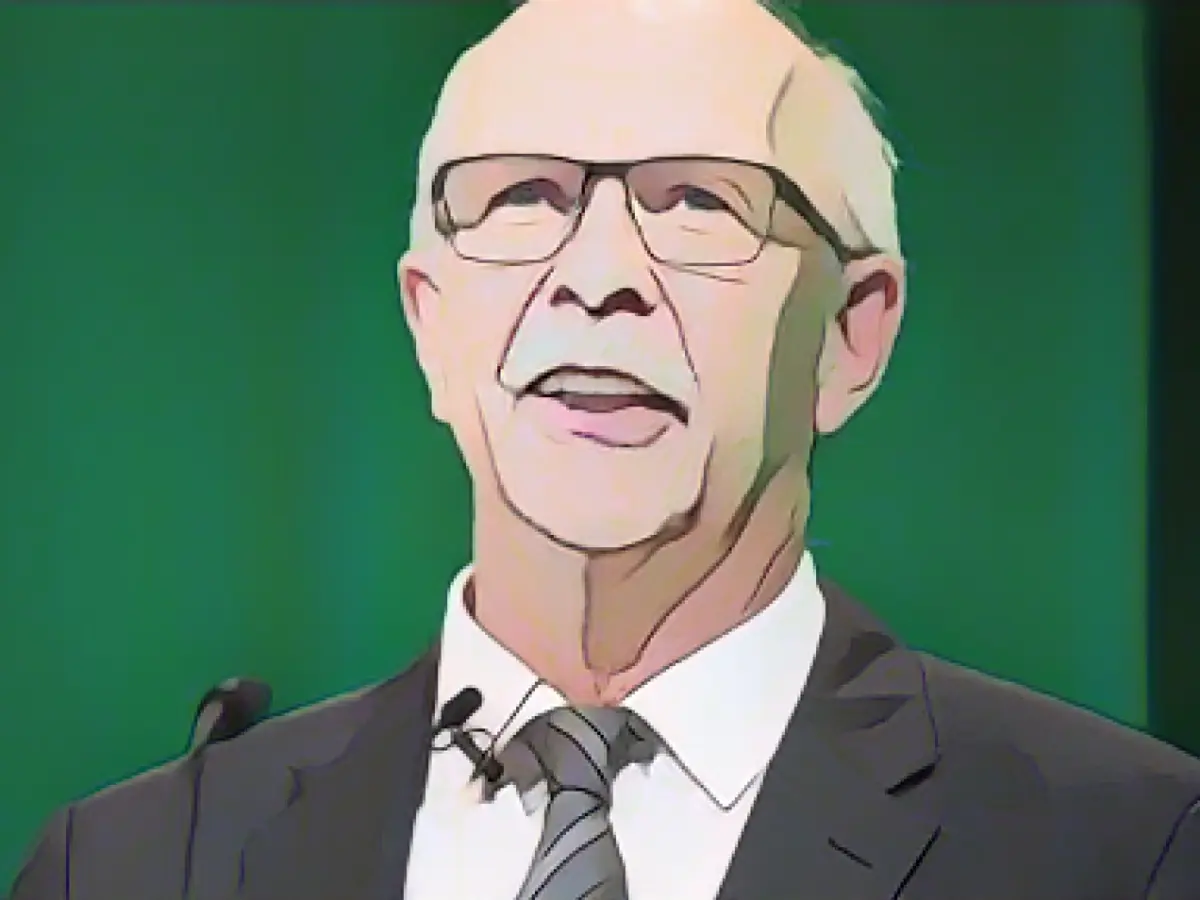Profits - Farmers in Lower Saxony in an "exceptional year"
On average, agricultural businesses in Lower Saxony achieved considerable profit increases in the past financial year. This is the result of an initial evaluation by the Lower Saxony Chamber of Agriculture (LKW), which was presented on Thursday at the chamber's annual meeting in Oldenburg. It was an "exceptional year".
"The boom on the dairy market, rising international grain prices and falling pig stocks led to a significant increase in profits," said LWK President Gerhard Schwetje. This applies to all types of main occupation farms - those that generate a large part of their income from agriculture.
The farms made an average profit of around 150,000 euros in the past financial year, which lasted from summer 2022 to summer 2023. This was an increase of almost 50 percent compared to the previous year. The companies had "finally reached a level that, in addition to private withdrawals, tax burdens and repayments, also enabled positive equity formation", said Schwetje.
Organic farms with a weaker balance sheet
Organic farms performed less well: Their profits increased on average by 18 percent to around 75,000 euros. Unlike conventional farms, they were unable to benefit from price fluctuations on the markets, said Schwetje. This was also due to the comparatively higher prices of the products.
The association president warned against overestimating the profit increases. In previous years, farmers had achieved inadequate results. In addition, Schwetje said that he is now expecting a worse financial year. Climate change, epidemics such as African swine fever and demands from politicians were also unsettling farmers.
Agriculture Minister Miriam Staudte said that price fluctuations were a fundamental problem. There was a great desire for stability, but extreme fluctuations in market prices could not be absorbed.
Debate about wolves
Regarding the debate on wolves, the Green politician confirmed that her party colleague, Federal Environment Minister Steffi Lemke, had put forward a good proposal. In October, Lemke had recommended that the federal states define certain regions: If a wolf has overcome protective measures such as a fence in these and has killed a grazing animal, it should be allowed to be shot for three weeks - within a radius of one kilometer around the pasture. Unlike in the past, there is no need to wait for a DNA analysis.
Staudte said that wolves could also perform positive functions. After this statement, there were persistent whispers in the hall. In a neighboring district, African swine fever had already occurred in wild boars, Staudte said. The wolf contributes to prevention by reducing the wild boar population.
The LWK has the task of promoting the interests of agriculture and must also pay attention to the interests of the general public. The chamber has existed in its current form since 2006, when the Hanover and Weser-Ems chambers merged. Unlike the Landvolk, for example, the professional organization does not generally make political demands.
Schwetje, who has headed the LWK since 2015, was unanimously re-elected at the chamber meeting. He will lead the chamber for another three years. Dagmar Heyens was reportedly the first woman to be elected to the three-member LWK Executive Committee.
Press release on figures Press release on Schwetje's re-election
Lesen Sie auch:
- Handball Supercup also in Düsseldorf in 2024
- Sütterlin-Waack sees digital radio at risk
- Proceedings against Goecke dropped after dog excrement attack
- Unemployment stagnates, but more long-term unemployed
- Despite the exceptional profit increases in Lower Saxony's agricultural businesses during the financial year, LWK President Gerhard Schwetje cautioned against overestimating these gains, as farmers had struggled in previous years.
- The annual profit increase for organic farms in Lower Saxony was 18%, but these farms were unable to fully benefit from market fluctuations due to higher product prices and other factors, according to Schwetje.
- Agriculture Minister Miriam Staudte acknowledged that price fluctuations were a significant problem in the agricultural sector, expressing a desire for market price stability but acknowledging that extreme fluctuations were difficult to manage.
- In October, Steffi Lemke, a Green Party politician and Federal Environment Minister, proposed allowing the shooting of wolves in certain regions if they had breached protective measures and killed grazing animals, a proposal supported by Miriam Staudte.
- Dagmar Heyens was reportedly the first woman elected to the three-member LWK Executive Committee during the chamber meeting, with Gerhard Schwetje being unanimously re-elected for another three-year term as LWK president.
- Miriam Staudte also addressed the issue of African swine fever, noting that the wolf's role in reducing wild boar populations could help prevent the spread of this disease in certain regions.
Source: www.stern.de








